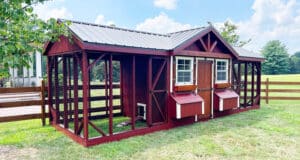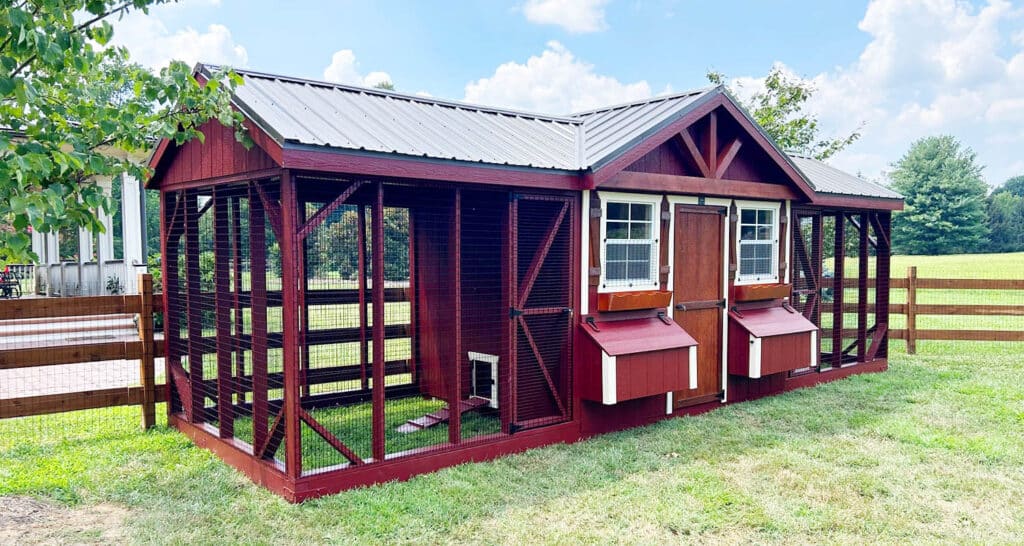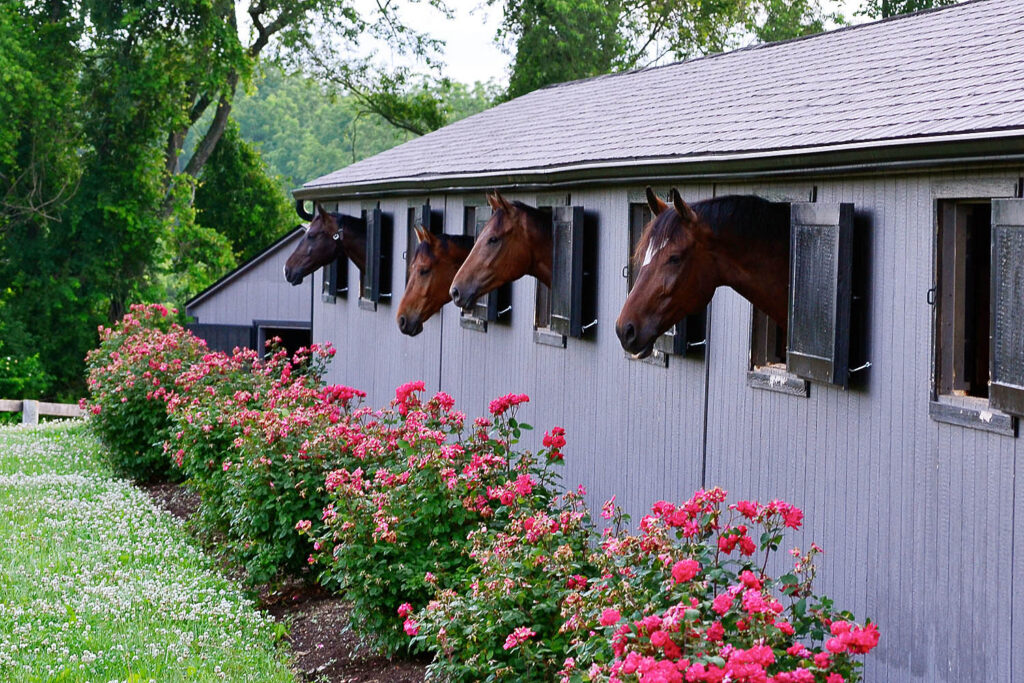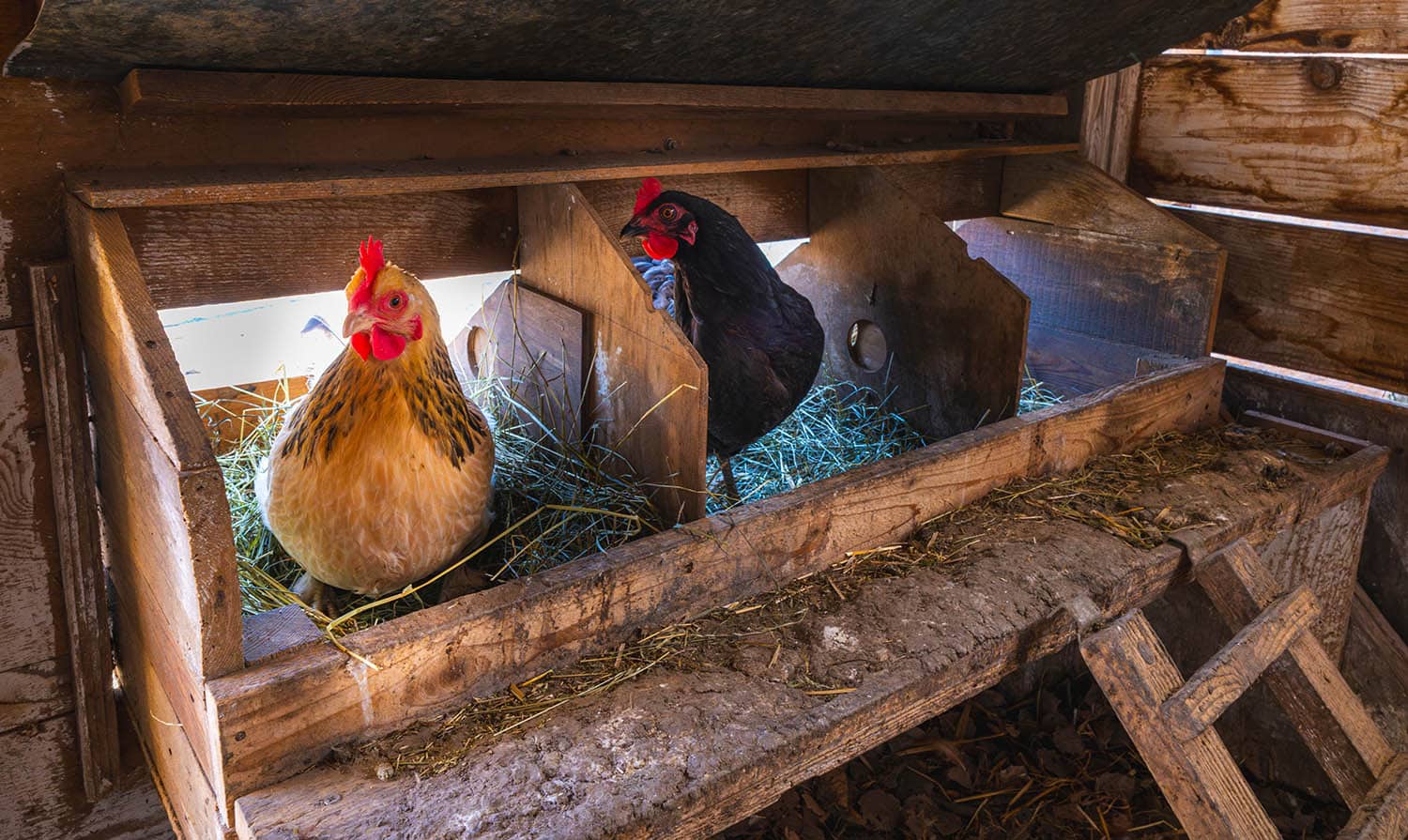 Keeping backyard chickens is rewarding, but nothing strains neighborly relations faster than a stinky coop. Odors from poorly maintained coops can travel far, but with the right care, even a small backyard setup can stay fresh. Here’s how to prevent smells and keep your flock healthy and your neighbors happy.
Keeping backyard chickens is rewarding, but nothing strains neighborly relations faster than a stinky coop. Odors from poorly maintained coops can travel far, but with the right care, even a small backyard setup can stay fresh. Here’s how to prevent smells and keep your flock healthy and your neighbors happy.
Why Chicken Coops Smell (and How to Prevent It)
The main culprit is ammonia, produced as chicken waste and damp bedding breaks down. Chickens themselves aren’t smelly—it’s the combination of manure and moisture that creates odors. A clean, dry coop with proper airflow won’t reek.Regular Cleaning: Your First Line of Defense
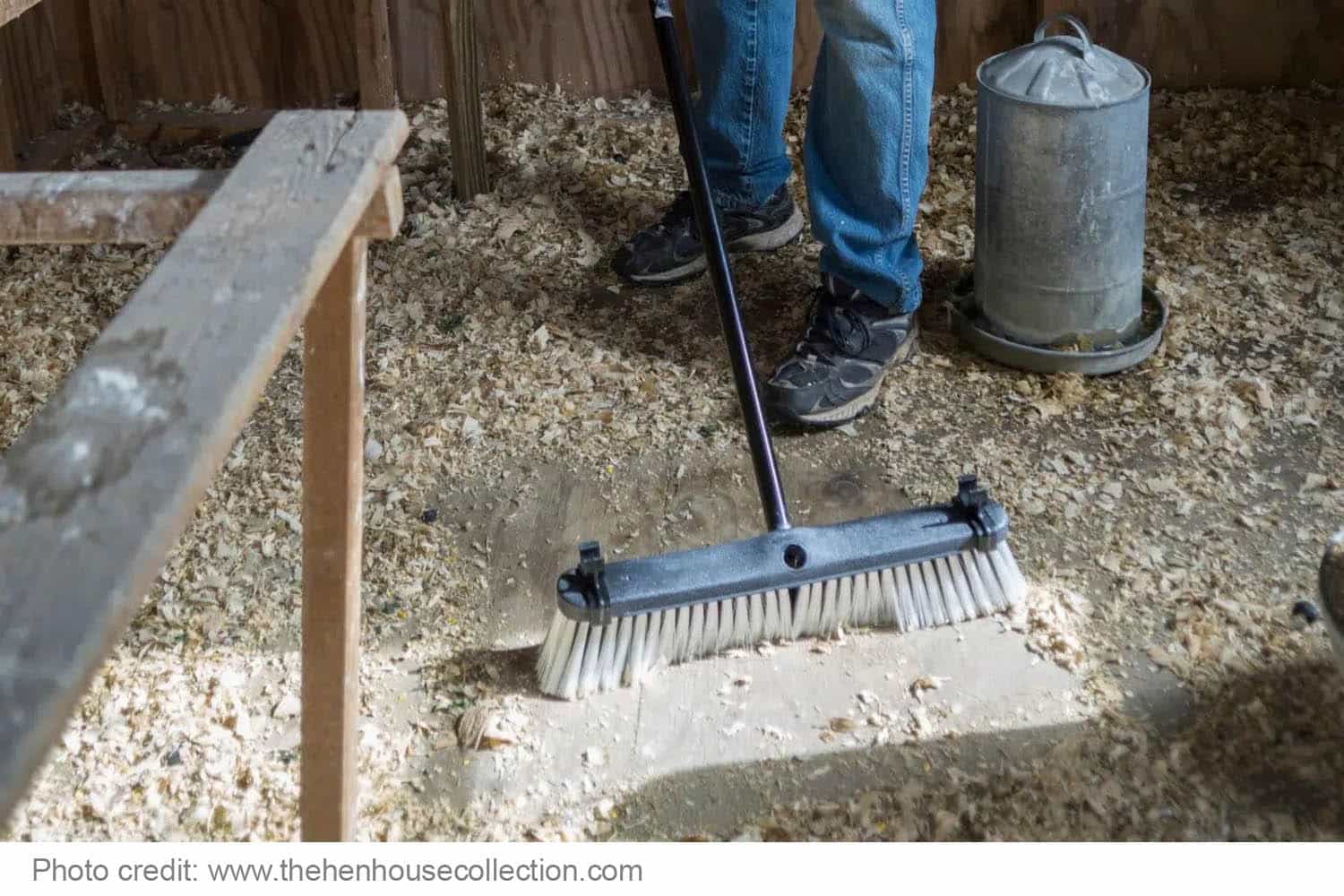 Daily/Every Few Days: Remove droppings, especially under roosts. Poop boards or trays make this quick—scrape them each morning to prevent ammonia buildup.
Weekly: Replace bedding in high-use areas, fluff litter for drying, and wipe down surfaces with a mild solution (water and vinegar). Fix water spills promptly.
Monthly: Deep clean—replace all bedding, scrub roosts, nesting boxes, and floors with a chicken-safe disinfectant. Let dry completely before adding fresh bedding.
Annual: A full clean-out once or twice a year, including power washing if needed, ensures long-term freshness.
*Tip: Moisture + manure = odor. Always dry the coop thoroughly after cleaning.*
Daily/Every Few Days: Remove droppings, especially under roosts. Poop boards or trays make this quick—scrape them each morning to prevent ammonia buildup.
Weekly: Replace bedding in high-use areas, fluff litter for drying, and wipe down surfaces with a mild solution (water and vinegar). Fix water spills promptly.
Monthly: Deep clean—replace all bedding, scrub roosts, nesting boxes, and floors with a chicken-safe disinfectant. Let dry completely before adding fresh bedding.
Annual: A full clean-out once or twice a year, including power washing if needed, ensures long-term freshness.
*Tip: Moisture + manure = odor. Always dry the coop thoroughly after cleaning.*
The Deep Litter Method: Less Work, Less Odor
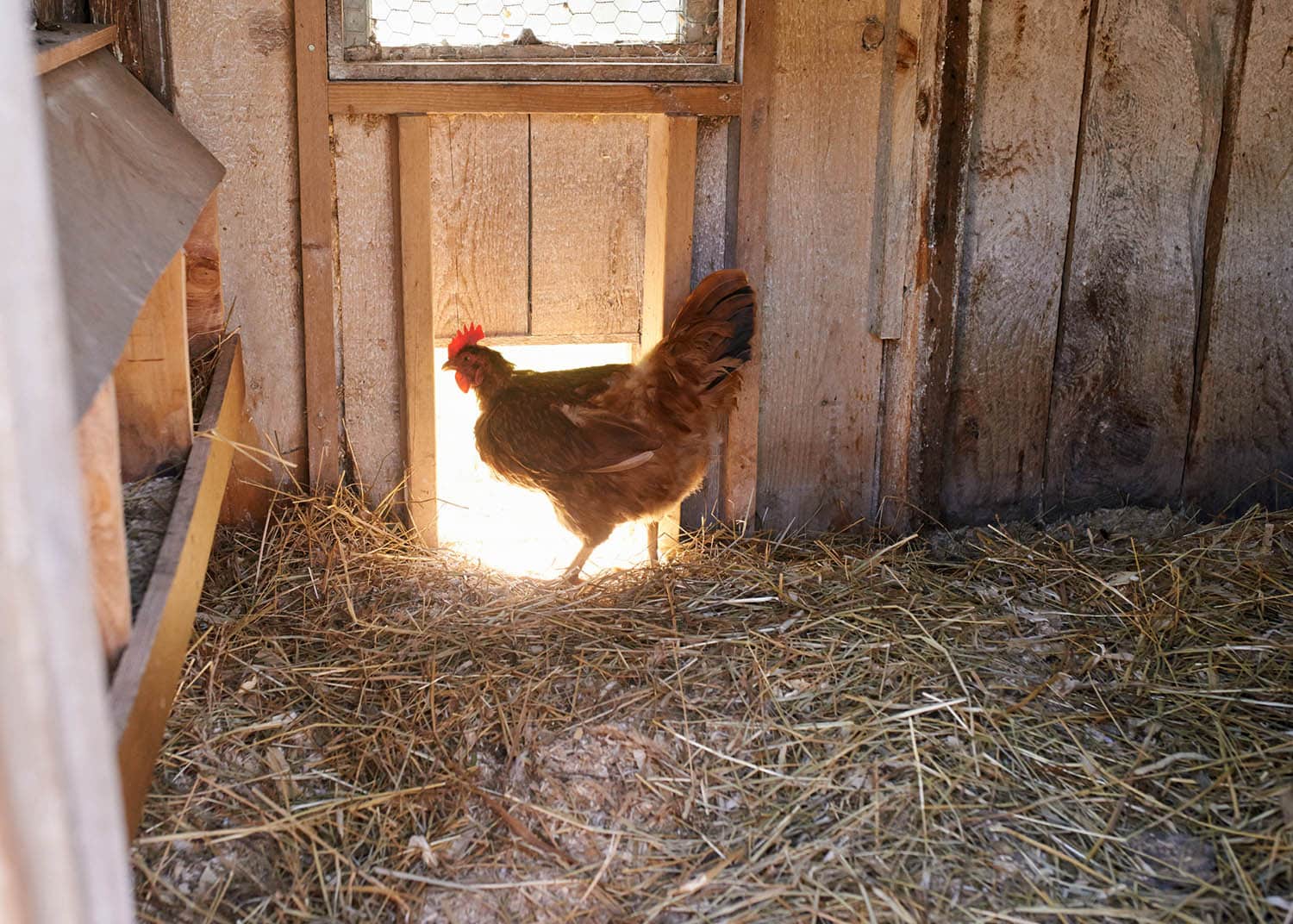 This method turns your coop into a mini compost system. Start with 8–12 inches of bedding (pine shavings or coarse wood chips) and add fresh layers over droppings. Good microbes break down waste, producing a mild, earthy smell instead of ammonia.
Benefits:
This method turns your coop into a mini compost system. Start with 8–12 inches of bedding (pine shavings or coarse wood chips) and add fresh layers over droppings. Good microbes break down waste, producing a mild, earthy smell instead of ammonia.
Benefits:
- Naturally neutralizes odor.
- Reduces cleaning to once a year.
- Generates gentle heat in winter.
- Fewer flies and moisture issues
Bedding Choices That Reduce Odor
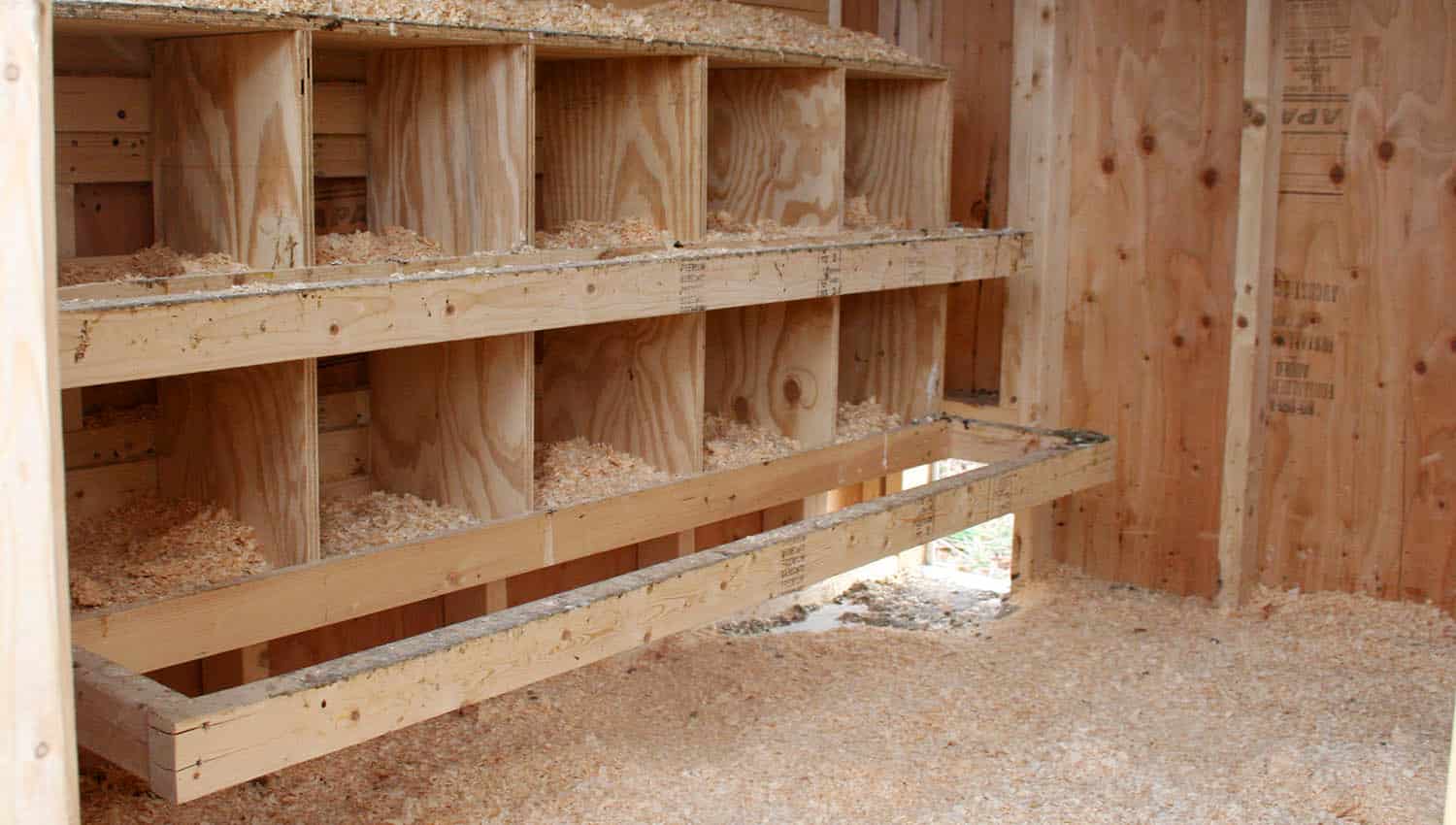 Pine Shavings: Absorbent, affordable, and pleasantly scented. Use kiln-dried only. Avoid cedar, which can irritate lungs.
Straw or Hay: Cheap but not very absorbent—best for frequent cleaning or deep litter systems.
Sand: Scoop daily like a litter box; odor-free when dry. Works well in low-humidity climates.
Hemp: Very absorbent, composts well, but more expensive.
Shredded Paper: Free and compostable but mats down when wet—good mixed with other bedding.
*Rule of thumb: Dry, deep bedding controls odor.*
Pine Shavings: Absorbent, affordable, and pleasantly scented. Use kiln-dried only. Avoid cedar, which can irritate lungs.
Straw or Hay: Cheap but not very absorbent—best for frequent cleaning or deep litter systems.
Sand: Scoop daily like a litter box; odor-free when dry. Works well in low-humidity climates.
Hemp: Very absorbent, composts well, but more expensive.
Shredded Paper: Free and compostable but mats down when wet—good mixed with other bedding.
*Rule of thumb: Dry, deep bedding controls odor.*
Odor Control Products & Natural Remedies
 Agricultural Lime: Dries bedding and neutralizes odor-causing bacteria. First Saturday Lime is safe for monthly use and also deters pests.
Diatomaceous Earth (DE): Absorbs moisture and kills mites and flies. Use food-grade only and avoid inhaling dust.
Baking Soda: Sprinkled lightly, it absorbs odor—don’t overuse.
Herbs: Lavender, mint, rosemary, and lemon balm smell pleasant and deter insects.
Enzyme Sprays: Break down waste naturally—use as directed.
Sweet PDZ (Zeolite): Traps ammonia—use in dropping boards or mix with bedding.
Agricultural Lime: Dries bedding and neutralizes odor-causing bacteria. First Saturday Lime is safe for monthly use and also deters pests.
Diatomaceous Earth (DE): Absorbs moisture and kills mites and flies. Use food-grade only and avoid inhaling dust.
Baking Soda: Sprinkled lightly, it absorbs odor—don’t overuse.
Herbs: Lavender, mint, rosemary, and lemon balm smell pleasant and deter insects.
Enzyme Sprays: Break down waste naturally—use as directed.
Sweet PDZ (Zeolite): Traps ammonia—use in dropping boards or mix with bedding.
Ventilation & Coop Design: Built-In Odor Prevention
 A well-designed coop stays fresher by preventing moisture buildup and making cleaning easy.
Ventilation: Windows and vents high on walls allow warm, moist air to escape. Keep air moving year-round, even in winter.
Elevation & Drainage: Raised coops stay dry and resist odor buildup. Avoid placing coops in low, damp spots.
Easy-to-Clean Features: Removable trays, smooth washable floors, and large access doors make frequent cleaning less work.
Space: Avoid overcrowding—allow 3–4 sq ft per bird indoors and 10–15 sq ft in the run.
Covered Runs: Keep outdoor areas dry so chickens don’t track moisture into the coop.
*Tip: Horizon Structures’ Amish-made coops come with ventilation, elevation, and easy-clean materials built in—perfect for odor control.*
A well-designed coop stays fresher by preventing moisture buildup and making cleaning easy.
Ventilation: Windows and vents high on walls allow warm, moist air to escape. Keep air moving year-round, even in winter.
Elevation & Drainage: Raised coops stay dry and resist odor buildup. Avoid placing coops in low, damp spots.
Easy-to-Clean Features: Removable trays, smooth washable floors, and large access doors make frequent cleaning less work.
Space: Avoid overcrowding—allow 3–4 sq ft per bird indoors and 10–15 sq ft in the run.
Covered Runs: Keep outdoor areas dry so chickens don’t track moisture into the coop.
*Tip: Horizon Structures’ Amish-made coops come with ventilation, elevation, and easy-clean materials built in—perfect for odor control.*
Being a Good Neighbor
Communicate: Let neighbors know you keep your coop clean. A gift of fresh eggs can build goodwill. Location: Place the coop away from property lines and downwind from neighbors if possible. Control Flies & Pests: Clean regularly, use fly traps, and store feed in sealed containers. Compost Carefully: Keep compost piles covered and far from property lines.Smell-Free Coop Checklist
✔ Keep it dry—repair leaks, manage water spills, and weatherproof. ✔ Clean regularly—scoop droppings and replace bedding before odor starts. ✔ Try deep litter for low-maintenance odor control. ✔ Use odor absorbers like lime or DE. ✔ Maintain ventilation year-round. ✔ Choose easy-to-clean coop designs. ✔ Dispose of waste responsibly. ✔ Be considerate about coop placement. Final Takeaway: A clean, well-ventilated coop with proper bedding and odor-control measures won’t just keep your flock healthy—it’ll also keep your neighbors happy.


